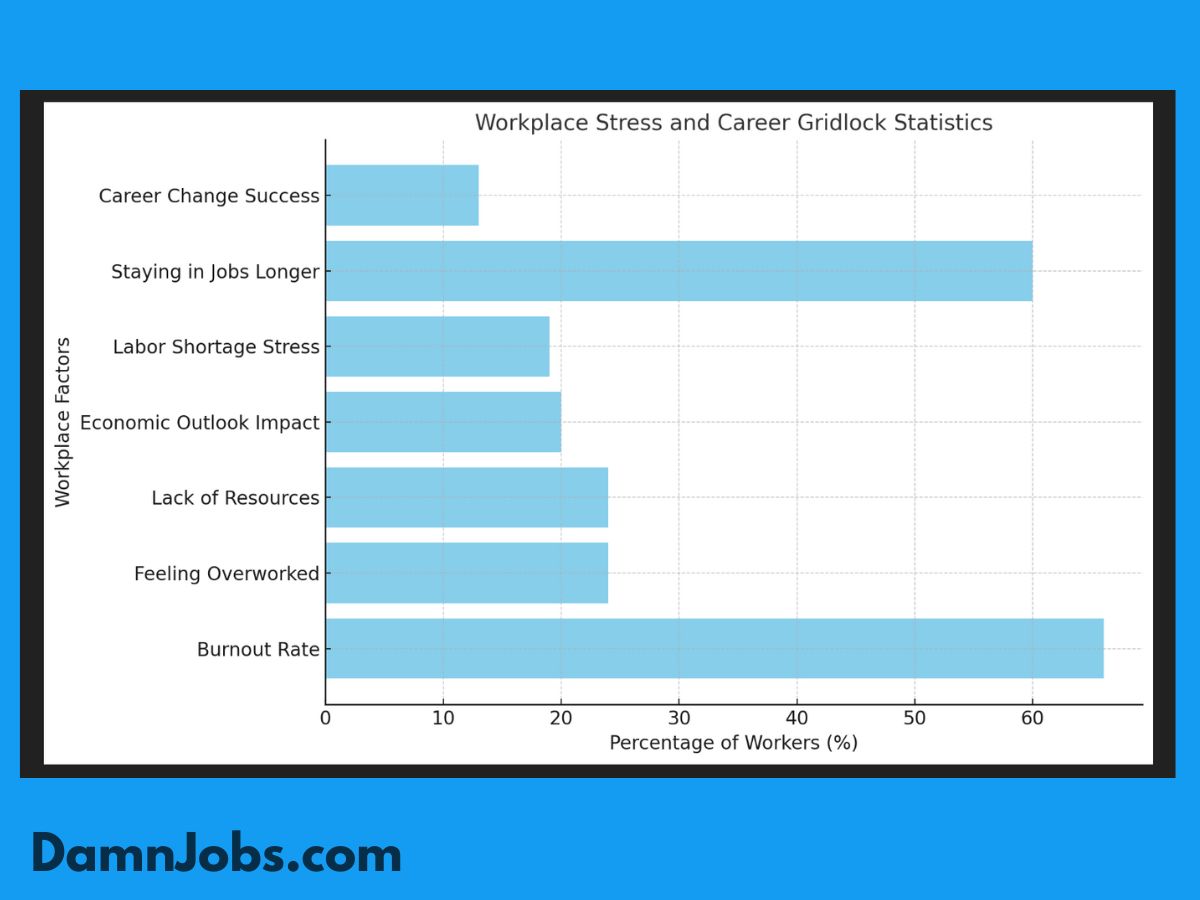Burnout Hits a Breaking Point
A staggering 66% of American workers are grappling with burnout, according to a new study from Moodle, a leading learning platform.
This marks a significant rise compared to the previous year when only 33% of employees reported extreme stress, based on the 2024 Aflac WorkForces Report.
The study highlights alarming stats: 24% of workers feel overwhelmed by an impossible workload, while another 24% cite inadequate tools or resources as a major barrier to productivity.
Adding to this pressure, 20% point to a bleak economic outlook, and 19% feel overburdened due to labor shortages.
Young Workers and the AI Dilemma
Scott Anderberg, Moodle’s CEO, underscores the struggles facing employees, particularly younger ones.
“Burnout rates are through the roof, and fears around AI are adding to the stress.
Many feel their roles could soon become obsolete,” Anderberg notes.
The RTO Push Intensifies
The return-to-office (RTO) movement is another factor fueling workplace anxiety. In 2024, tensions around RTO mandates reached new heights, and 2025 seems to be following suit.
Under the Trump administration, the Department of Government Efficiency (DOGE), spearheaded by Elon Musk, has ramped up efforts to cut federal spending.
Thousands of federal employees have already been laid off, with DOGE urging agency leaders to prepare for even more reductions.
In this climate, many workers feel uncertain and fearful about their futures, compounding existing stressors.
The Rise of Career Gridlock
Resume Now’s recent research sheds light on a growing trend: Career Gridlock.
This phenomenon describes workers feeling stuck in their roles due to financial fears, skill gaps, and a lack of clear pathways forward.
The findings are striking:
- 60% of employees have stayed in jobs longer than intended due to transition challenges.
- 66% believe a career change would increase their happiness, yet only 13% have successfully made the switch.
Financial Fears Hold Workers Back
Money remains the top obstacle to career transitions:
- 35% worry about starting over at a lower salary.
- 34% fear financial instability during the transition.
- 32% hesitate, unsure if a new career would be the right fit.
Skills gaps add another layer of concern, with 20% worried about gaining the necessary qualifications and 14% feeling intimidated by more experienced competitors.
Breaking Free from Career Gridlock
Keith Spencer, a career expert at Resume Now, emphasizes that change is possible.
“While financial worries and uncertainty can make career changes daunting, the job market is evolving.
Employers are now prioritizing skills over degrees.
By leveraging transferable skills and crafting a strategic plan, workers can transition confidently into new roles,” Spencer advises.
Related Reads
How To Handle Job Burnout?
Americans Feel Safe in Their Jobs, But Many Want Better Pay
The Importance Of Work-Life Balance For Mental Health
Despite the challenges, the path to a fulfilling career is within reach for those ready to take the leap.

